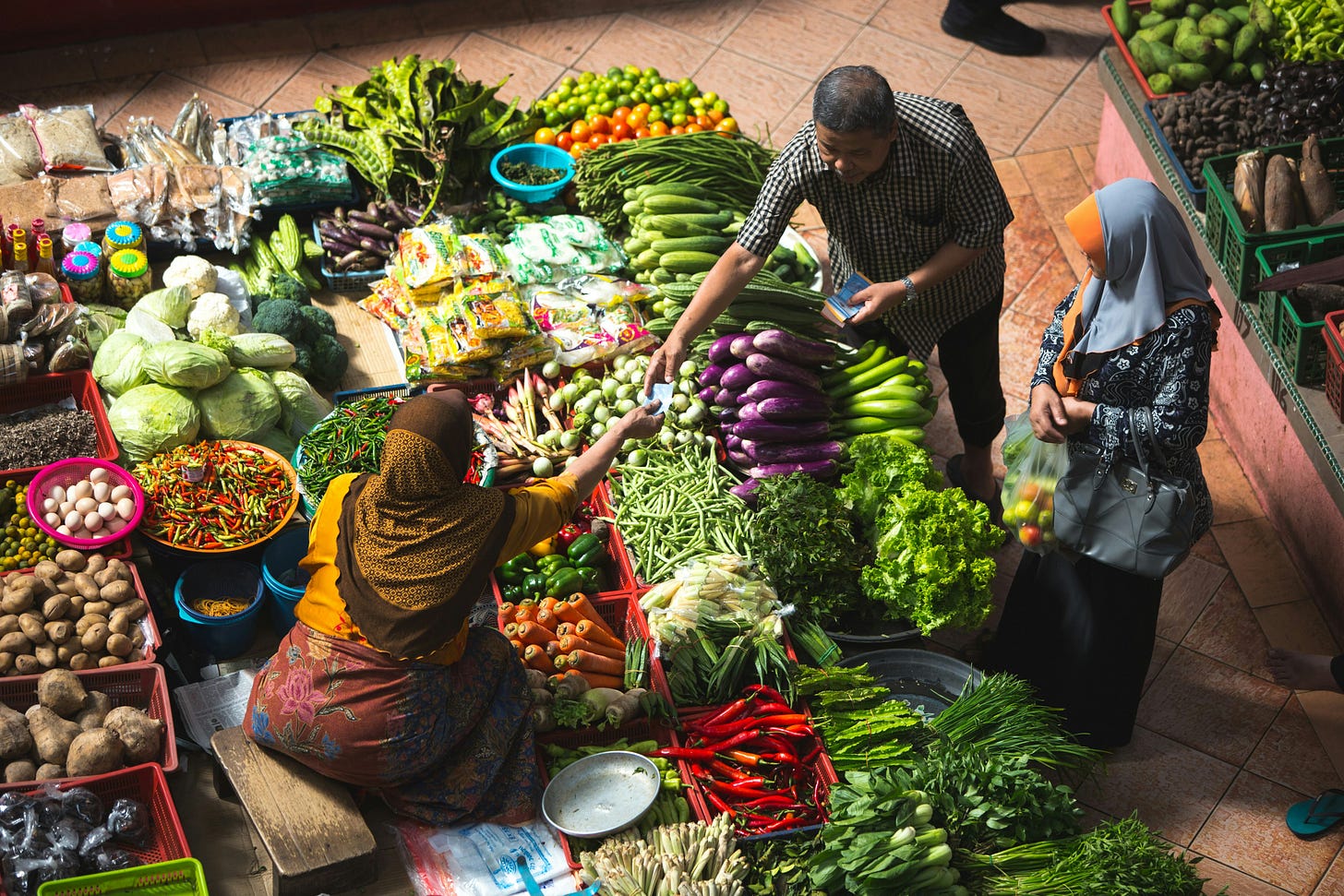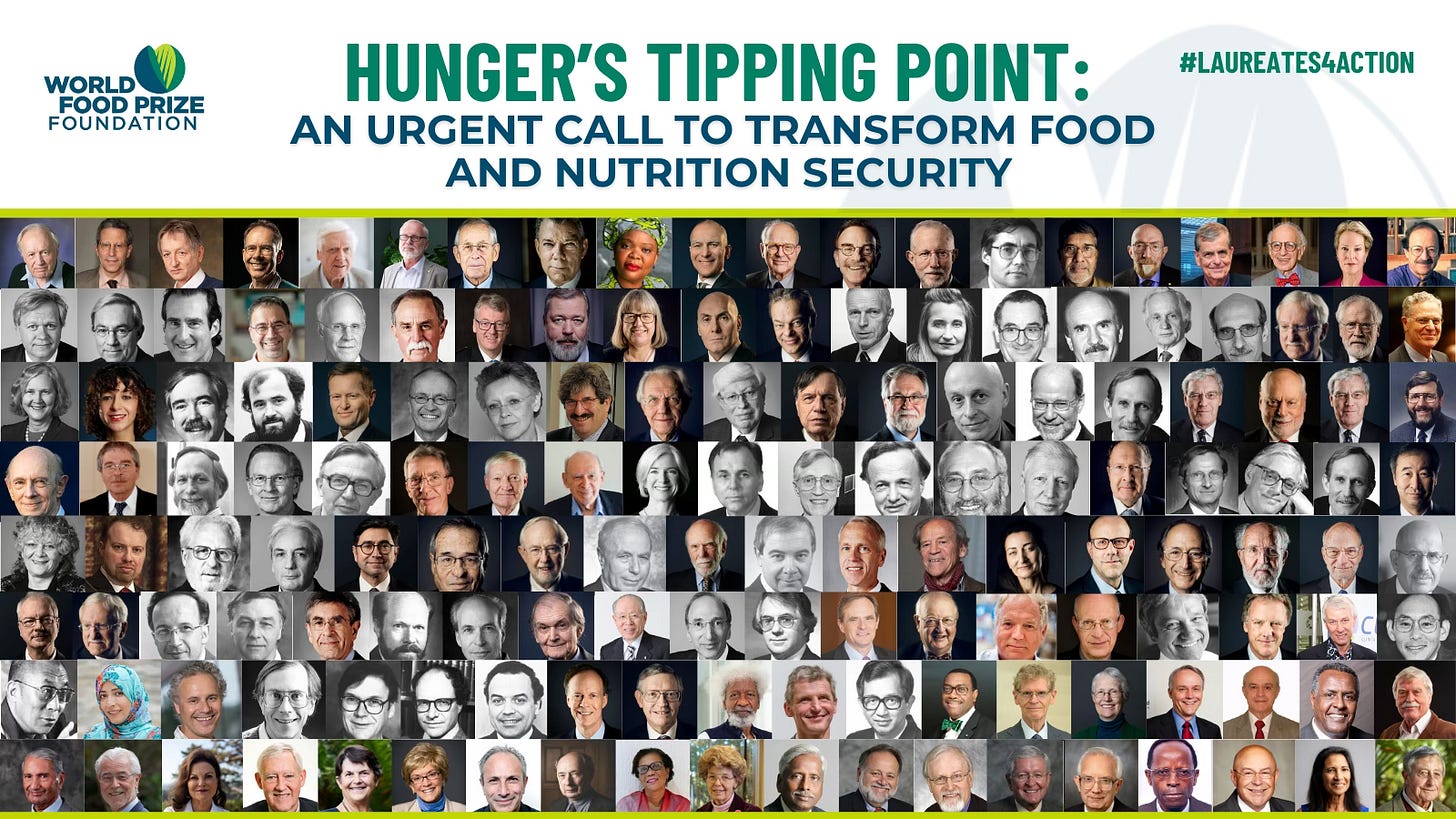CCI joins urgent call for Nutrition Security 'Moonshot' Effort
153 winners of Nobel & World Food prizes make unprecedented plea for financial & political backing for “moonshot” research to avoid a global hunger catastrophe in the next 25 years.
In an open letter signed by 153 winners of the Nobel Prize and World Food Prize, the signatories warned that the world was “not even close” to meeting future food needs, with an estimated 700 million people going hungry today and an additional 1.5 billion people to feed by 2050.
The letter predicted humanity faced an “even more food insecure, unstable world” by mid-century unless the international community ramped up support for the latest research and innovation. Citing challenges including climate change, conflict and market pressures, it called for “planet-friendly ‘moonshot’ efforts leading to substantial, not just incremental, leaps in food production for food and nutrition security.” The appeal was coordinated by Cary Fowler, joint 2024 World Food Prize Laureate, former U.S. Special Envoy for Global Food Security.
CCI urges multilevel cooperation to transform food systems
As global heating has intensified, spread, and begun compounding its effects, creating unprecedented costs and destabilizing disruptions, there is increasing concern that food supplies will become less stable and eventually fail. The ripple effects of a major food supply failure would be global and could rival the COVID-19 pandemic in terms of disruption of everyday life and economies large and small.
For this reason, CCI and the Climate Value Exchange are drawing on work done through the Good Food Finance Network, the Food Trails initiative and its Impact Investors Living Lab, and the United Nations Food Systems Summit, to outline a series of principles that can inform city-driven transformation of food finance. The aim is to create conditions for progress toward everyday exchange of value to build climate resilience and foster healthy, sustainable food systems.

The City Food Finance Principles for Building Climate Value are:
Common Reality – Health-building, nutritious, sustainably produced food should be an affordable, accessible everyday option for all.
Delivering Impact – Cities deliberately play the role of impact investor, to shape healthy, sustainable food environments.
Urban-Rural Feedbacks – Cities work with surrounding rural areas to support convergence of consumption, production, and incentives.
Multilevel Cooperation – Cities engage with regional and national authorities to support enhanced implementation of national climate, food, health, and biodiversity plans.
Co-Investment – Cities engage proactively to shape and mobilize investment partnerships linked to a broader Co-Investment Platform for Food Systems Transformation.
Tracking and Labeling – Cities act as critical intermediaries to support needed data systems integration and multidimensional metrics.
Each of these principles can support value-building investments that improve health, quality of life, and economic opportunity. Cutting across all six is the opportunity for cities and regional governments to reward impact investors that get capital and capability moving to innovative start-ups, effective community-based networks, and wider regional cooperatives.
What are nutrition security moonshots?
One of the primary reasons for investment in "moonshot" research is that when you race to solve a challenge as big as sending human beings to the Moon and bringing them safely back to Earth, you make many related discoveries along the way. A moonshot is aimed to produce high-value outcomes we cannot predict.
Another reason is to bring a lot of talent and cooperative capacity to solving specific problems that are part of the bigger systemic challenge. We know what those problems are, and we know what solving them would achieve; the big open question is: Which specific solutions will be viable, scalable, and create enduring good outcomes?
We know that we need to secure as many plant varieties as possible for eventual use in case of a major threat to global food production. We know ongoing research and cultivation are needed to ensure agricultural species and varieties are kept intact and viable. We know that data systems can play a major role in not only supporting research and logistics, but in bringing new investment and opportunity to highly vulnerable food producers.
The promise inherent in applied Earth systems science data making new livelihoods, and better compensation, available to vulnerable agricultural communities goes beyond climate resilience. Such data systems can bring major new investment and diversified job creation to remote communities, and make it easier to give consumers the information they need to support the best practices and products.
Business models are also essential: In many places, new small and medium-sized businesses will emerge to provide the services that make health-building sustainable and secure food systems the everyday norm. And those small businesses will provide the critical path to the better future we can achieve only by daring to try.
Conclusion
CCI supports the urgent call to transform food and nutrition security, because the quality of life for billions of people, across all nations, depends on its being heeded and put into practice. We support this call to action through our work with the Good Food Finance Network, engagement around the City Food Finance Principles, our advocacy around the Capital to Communities approach to sustainable finance, the Data Systems Integration Forum (happening today), and in our efforts to establish multidimensional climate cooperation initiatives.




